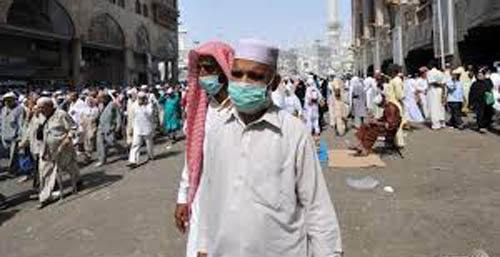 mer
mer
They say no information is available on the safety of camel’s milk, but person-to-person transmission is not unexpected.
Health officials on Tuesday reassured residents that the Mers virus does not pose a danger to public health after it emerged that three more people have been infected in the capital. The three may have been in contact with others who carried the virus but they showed no symptoms at all, said the Health Authority-Abu Dhabi (Haad).
Saudi Arabia is also urging its citizens to stay calm after it reported 16 cases over the past nine days, including two deaths.
Patients showing no symptoms rid themselves of the virus within a fortnight, but are quarantined in hospital in the UAE.
Speaking to Khaleej Times, Dr Abdulaziz N. Alagaili, director of the Mammals Research Chair at King Saud University, who co-authored a study with Dr. Thomas Briese in February, which proved the existence of the virus in camels in Saudi Arabia for 20 years, said whether the Mers virus circulates in camels for many years or just recently has no impact on the safety of meat or other camel products.
“The only place in camels where we know for sure that the virus is present is in the nasal secretion of infected animals (and probably also in saliva). Thus, this can serve as a source of contamination by which other camel products can be tainted. Cooked meat is not considered dangerous,” the scientists said.
They said no information is available on the safety of camel’s milk, but person-to-person transmission is not unexpected. “However, health care personnel in the UAE and elsewhere should be trained and wear appropriate personal protection equipment to avoid such preventable exposures,” said the authors of the study. The results showed an estimated three-quarters of camels in Saudi Arabia had evidence of Mers infection. It confirmed that camel-to-human transmission is possible, a link which could help control the spread of the disease.
“We have currently no indication of virus spread from camels to other animal species, including rodents, but this possibility cannot be excluded,” they said.
Meanwhile, the Saudi health ministry has sent text messages to the country’s 30 million residents to check its website. People have been asked to call a free hotline and check its official Twitter account for updates on the coronavirus. “The virus doesn’t spread easily between people, and no cases have been observed related to crowds, in schools or at football stadiums,” the Saudi Press Agency reported, citing a ministry official.
According to World Health Organisation figures, 230 people are known to have been infected since the virus emerged in Saudi Arabia two years ago, and 92 of them have died.


